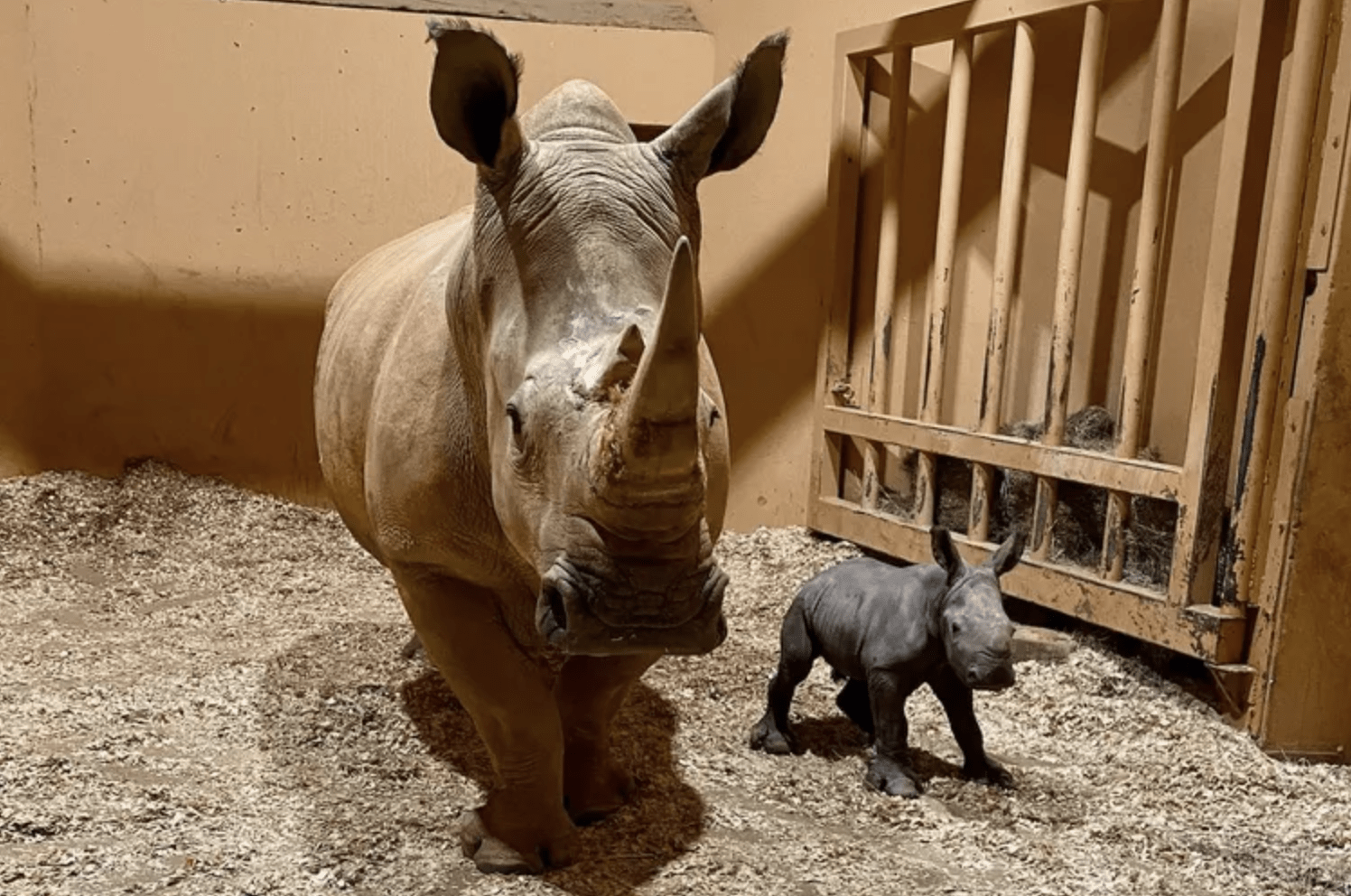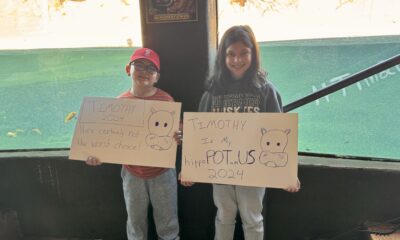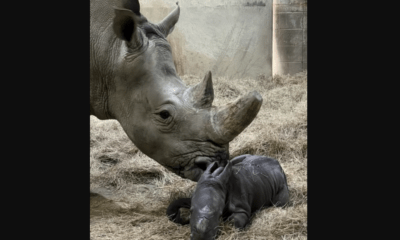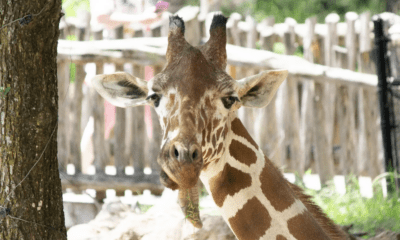ANIMALS
Zoo Atlanta Announces Christmas Eve Birth Of Rare White Rhino
Published
6 months agoon

Zoo Atlanta
Zoo Atlanta announced its very own Christmas miracle: the birth of a rare southern white rhinoceros — a first for the zoo.
The baby white rhino was born to 22-year-old mother Kiazi on Christmas Eve. Kiazi previously birthed two calves before moving to Zoo Atlanta, and is providing appropriate maternal care, the zoo said.
The calf is the first offspring for 12-year-old father Mumbles, who was introduced to Kiazi in 2022 after the Association of Zoos and Aquariums White Rhino Species Survival Plan recommended the pair breed.
“The Zoo Atlanta family is beyond excited about the birth of Kiazis calf. This birth has been long-awaited news for many months. We have had many exciting developments in our rhino population over the past year,” Zoo Atlanta President and CEO Raymond King said in a statement.
“If there is a special connection that our Members and guests can make with Kiazi and her calf, this is a connection that can translate to conservation action, King said. All rhino species are currently in peril, and as stewards of this brand-new ambassador here in Atlanta, we also have a responsibility to do all we can to raise awareness of the status of wild rhinos.”
Kiazi and her calf will continue bonding behind the scenes before returning to the rhino habitat, where the calf will be introduced to Mumbles.
The zoo welcomed a second female white rhino, 17-year-old Dakari, in October, after it was recommended that she also breed with Mumbles. The zoo said she will be introduced to Mumbles in 2024.
Southern white rhinos, the largest of the five rhino species, are classified as Near Threatened by the International Union for Conservation of Nature. The species is especially vulnerable to poaching because they travel in herds in the wild, making them easy to find. Poachers target them for their horns.
Despite their name, southern white rhinos are not, in fact, white. The zoo says the name is believed to be derived from the Afrikaans word ‘wyd’, meaning ‘wide’, in reference to the shape of their lips.
TMX contributed to this article.
More From Local News X
-


California: Dog Found Left for Dead with Critical Injuries on…
-


UK Police ‘Confused’ By Bird Recreating The Sound Of Their…
-


Kitty Rescued off the Highway by Nevada State Trooper in…
-


More: Timothy, San Antonio Zoo Hippo, Announces His Presidential Bid…
-


Burrowing Ghost Shrimp Cause ‘Mini Volcano’ Phenomenon During Low Tide…
-


Manhattan: a wild turkey hanging outside our office and flying…
-


California Man Falls Over Cliff Trying To Rescue Bird, And…
-


Indianapolis Zoo Announces Birth Of White Rhino Calf On Super…
-


Dallas Zoo Euthanizes Giraffe Ferrell After He Injured His Jaw…
-


Florida Alligator Strolls Through Starbucks Drive-Thru
-


Raccoon Has Mayo Jar Removed from It’s Head in Painesville,…
-


A Pod of Approx. 230 Whales are Stranded on Tasmanias…
